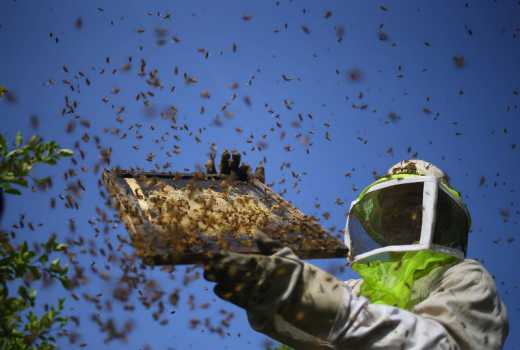
In the middle of a seven-acre woodlot of indigenous trees in Chemare, a village in Rift Valley, Charles Ng’ong’oni keeps 164 hollow-log beehives, which in good years bring him a healthy income by producing thousands of litres of honey.
Ng’ong’oni, 63, has managed the hives since the 1970s. But these days he is being joined by a growing number of farmers in East Africa – and around the world – who are taking up beekeeping as a way of broadening their income in the face of wilder weather, including heat, droughts and floods that can decimate crops. But beekeeping, Kenyan experts now say, is not proving as climate hardy as farmers had hoped.